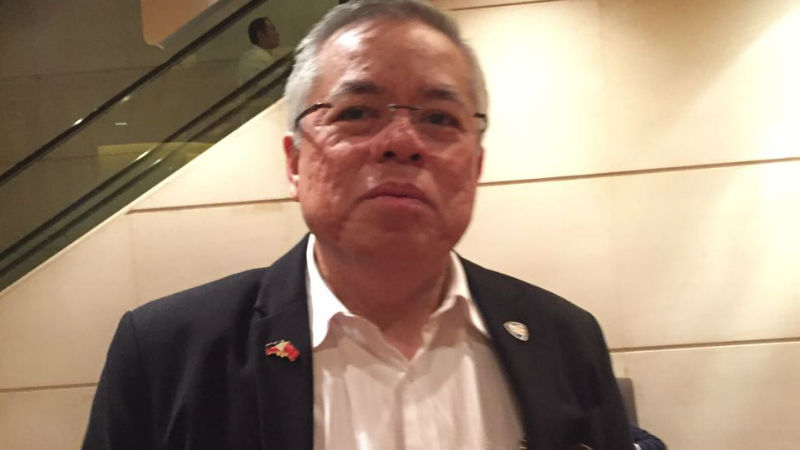Ending ‘endo’ will scare off investors, says DTI
The Department of Trade and Industry (DTI) and some influential business groups warned on Tuesday that making direct hiring the norm for employment would scare off investors.
Trade Secretary Ramon Lopez and the business groups are opposing the labor sector’s proposed draft for an executive order (EO) on contractualization.
The labor groups are expecting President Rodrigo Duterte to sign the EO ending the practice of “endo” on or before May 1.
“Endo,” or end of contract, refers to a contractualization scheme that offers short-term temporary work arrangements.
It is unclear, however, if the President would sign the version being pushed by the labor sector.
Business groups, however, have voiced objections to the labor sector’s draft EO.
According to a copy of the labor sector’s draft EO, direct hiring would be the “general norm” in employment relations, ruling out contracting and subcontracting arrangements.
“To insist that they all get hired directly by the company can only lead to lesser investments and lower job generation, which is what I fear most,” Lopez said in a text message to reporters.
Labor-friendly EO
But Alan Tanjusay, spokesperson for the Associated Labor Unions-Trade Union Congress of the Philippines,
explained that contractualization would still be allowed in some cases under the draft EO from labor groups.
These arrangements would only be allowed in cases in which additional workers are needed to meet a temporary surge in demand, Tanjusay said in a phone interview with the Inquirer.
These cases, which Tanjusay described as a “compromise,” would still need to be approved by the labor secretary, after consultation with the National Tripartite Industrial Peace Council, which has representatives from both the labor and employers’ sectors.
But business groups interviewed by the Inquirer rejected the labor sector’s proposal, calling instead for flexibility in work arrangements since this is the global practice.
Employers vs EO draft
Otherwise, they said the EO would hurt job opportunities in the country.
“You cannot change the business model all over the world. [If] you want to dissuade investments, [if] you want people to turn away from the country, then you do it. But what they’re asking for does not make sense. It’s unfair,” said Donald Dee, president of Employers Confederation of the Philippines (Ecop).
Ma. Alegria Sibal-Limjoco, president of the Philippine Chamber of Commerce and Industry, said the group shared the position of Ecop on the matter.
The American Chamber of Commerce of the Philippines (AmCham) said an EO could not amend a law, noting that the labor code allows for contracting.
“A modern economy requires flexible work arrangements. One size does not fit all, especially for SMEs (small and medium enterprises),” said John Forbes, senior adviser of AmCham.
The Management Association of the Philippines (MAP) said the EO drafted by workers’ groups would not necessarily be prolabor.
“The proposed ban on outsourcing is against the concept of free enterprise and is not necessarily prolabor, as it stifles employment growth in the economy,” said Rico de Guzman, chair of MAP’s subcommitttee on labor.
DTI: We’re prolabor
Lopez said his department was supportive of improving workers’ security of tenure and regularizing them with all the benefits and even a retirement plan, “which can be achieved either in the company itself or in the contractor company.”
Lopez said that a lot of investors had complained about the uncertainty in the labor sector, prompting them to look into countries such as Vietnam and Cambodia where labor rates are lower.
He said it would be “easy” for these investors to move to other countries, a development that would cost the Philippines jobs.
“Absent any new investments or expansion, then it would not matter anymore if we force direct hiring by employers because there is no new job to begin with,” he added.

